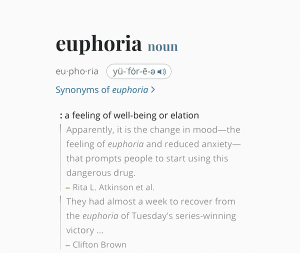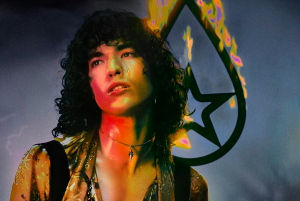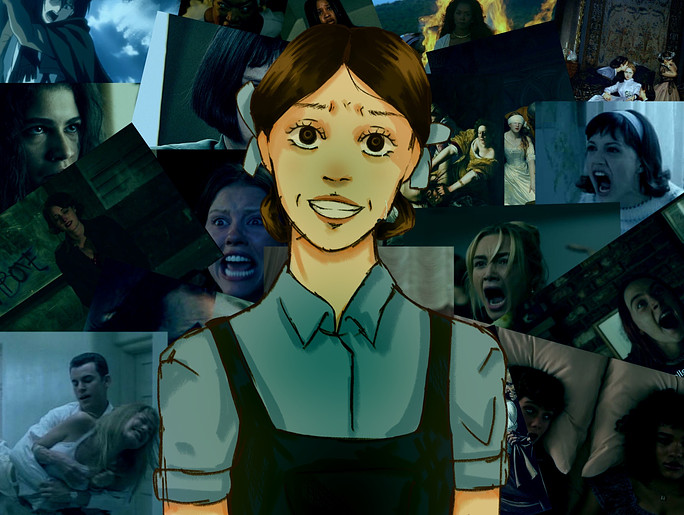Cassie’s infamous line from “Euphoria” — “You can all judge me if you want, but I do not care. I have never, ever, been happier” — has cemented itself in female rage edits made by average 16-year-olds. She embodied in that moment what it means to be a dramatic and slightly overbearing teenage girl because your feelings feel like an avalanche at all times.
“Euphoria” is a dramatic reenactment of what happens in high school, but those exaggerations are exactly why so many teenagers relate to it. It especially resonated with teenage girls who saw situations that could be similar to theirs in a general sense since it is rare to see media where teenage girls are not overly stereotypical or mean.
“Euphoria,” along with other movies and shows that star female characters have gone past that and made them into the complex characters that they are. Yes, they are mean and hate their friends, but they also love them and do not know what to do without them. A teen girl’s mind is a spectrum.
It sounds exaggerated to call it a spectrum but sometimes it feels like your emotions, no matter how extreme they are, are not valued and passed off because you are “just a teenage girl.” This article might even come off as just another teen girl being dramatic about how hard their lives are but with influencers like Andrew Tate and other alpha male podcasters being on the rise, their rage is not unprompted.
The female rage and alpha male epidemics go hand in hand by being responses to a society that ignored their problems and left them no place to deal with them. Alpha male podcasters and influencers have been ignored in favor of the “Be a Man” mindset which has led to them having to force hyper-masculinity on themselves because they can not imagine being a man any other way. Female rage has come about because, for the first time in hundreds of years, women can finally say that they are sick and tired of everything. But just saying that does not do anything so yelling and being dramatic might be the only way to get their point across.
Alongside the female rage edits, the phrase “I’m just a girl” has sprung up in popularity among not just teen girls but also young adult women. Similarly to the female rage and alpha male podcasts going hand in hand, the “I’m just a girl” phrase being popular seems to be a direct response to the “Boys will be boys” phrase. “Boys will be boys” is a phrase that has been used for decades to excuse men’s bad behavior by saying that they are still young and learning so you can not blame them too much. Women have responded by excusing their funny wrongdoings, like spending too much at Target, by saying “I’m just a girl.”
Women do things wrong, they are human but these phenomena are direct responses to them not being able to even make the tiniest mistake without being criticized and ridiculed. Women of color especially experience this at far more extreme rates. For example, from the earliest ages, Black women did not get to just be a kids due to society’s over-sexualization and adultification of them. The term “I’m just a girl” and these female rage edits can mean so much more because women of color are not given a chance at a normal childhood and are especially not allowed to be mad. If they show rage, then they become a stereotype of their culture, like the “Angry Black Woman” or “Spicy Angry Latina” stereotype. On the other hand, their trauma is mocked and it is “nothing to cry over” like Megan Thee Stallion. So in the modern age, to be able to express rage at least a little bit more openly is so freeing.
Fictional women are not even exempt from this ridicule for being too angry or too sensitive even though it is completely valid. Katara from “Avatar: The Last Airbender” is an infamous example of men hating a woman just because she had valid trauma and she talked about it “too much.” Her mom was killed right in front of her by a fire bender and the men who watched this show said that her talking about it was just her being sensitive. Even Mikasa from “Attack On Titan” has been sexualized since season one when she is supposed to be only 15 years old. When she cut her hair in season four, male fans were outraged. They could no longer sexualize this character anymore because she “looked too much like a guy” and when she showed rage for being in a war, she was being “too dramatic” and was told she should just be with Eren by now.
Women, no matter if they are real or fake, famous or average, have never been able to live peacefully. So all of these “Euphoria” coming-of-age, female rage edits or “I’m just a girl” TikToks are just responses to a society that has ignored women’s feelings towards anything time and time again.







